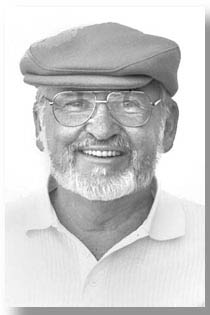The death of Senator Kennedy marks the closing of an era of politics. The era mostly existed until the end of the Regan Administration where he and House Leader Tip O’Neil, although on opposite sides in most issues, could maintain a friendship after business hours.
While national politics has always been a game of hardball, it was also a game with rules of behavior. Participants were civil to one another and willing to compromise so that both sides received something from any legislation. This is the era that has passed to be replaced with the no-quarter-given process we now see.
Ted Kennedy could play hardball but he could also see the benefits of working together in the interests of the American people. He was the last holdover from that time, with the possible exception of Senator Byrd of W. Virginia, who defends the Senate’s reputation for civility.
I blame the passing of the era on the politics of our time. It may not be the politicians themselves who brought it about but the special interests on both sides who see their narrow interest as the only issue worth considering. Their lobbying has turned us into a 50/50 nation with half of us for or against everything. And the politicians didn’t fight that.
We work remarkably well in times of crisis but quickly return to our partisan positions as soon as the crisis passes. I’ll be watching closely to see how quickly the rosy glow of this weeks memorial events for Senator Kennedy fades back into the present bare knuckles tactics we’ve become familiar with.
The senator was the champion of those many Americans who had no special interest lobby to lobby for them. He truly was concerned with all Americans.
I hope there will be someone to take up his causes but don’t feel too certain that there will be.
Saturday, August 29, 2009
Friday, August 7, 2009
The professor and the sergeant
Now that’s it over, I’ll put my two cents in on the subject of the professor and the police sergeant.
We were subjected to two weeks of various views of a confrontation with apparent racial implications. I suspect race had little to do with it. It was just a matter of the sergeant saving face when confronted with someone who wouldn’t comply with his commands.
Backing up for a minute – a basic operational point made in police training is that the officer has to keep control of the situation. We’ve all seen instances on TV when video cameras in the police car show non-compliance leading to confrontation with the officer. The police always win.
My guess on the situation between the professor and the sergeant is that, by verbally arguing with the officer, the professor put the sergeant in a position where he wasn’t in control of the situation. How to regain control?, arrest the professor.
If the professor had been white I believe the outcome would probably have been the same. This racial version has been allowed to stand because, one, possible racial over tones play well, and two, because it would be an even bigger stain on the police if they acknowledged that charges such as public disturbance are used to punish someone who doesn’t obey an officer’s commands.
Spending several hours being arrested and booked will make anyone question the value of arguing with a police officer.
This might be what happened.
We were subjected to two weeks of various views of a confrontation with apparent racial implications. I suspect race had little to do with it. It was just a matter of the sergeant saving face when confronted with someone who wouldn’t comply with his commands.
Backing up for a minute – a basic operational point made in police training is that the officer has to keep control of the situation. We’ve all seen instances on TV when video cameras in the police car show non-compliance leading to confrontation with the officer. The police always win.
My guess on the situation between the professor and the sergeant is that, by verbally arguing with the officer, the professor put the sergeant in a position where he wasn’t in control of the situation. How to regain control?, arrest the professor.
If the professor had been white I believe the outcome would probably have been the same. This racial version has been allowed to stand because, one, possible racial over tones play well, and two, because it would be an even bigger stain on the police if they acknowledged that charges such as public disturbance are used to punish someone who doesn’t obey an officer’s commands.
Spending several hours being arrested and booked will make anyone question the value of arguing with a police officer.
This might be what happened.
Subscribe to:
Posts (Atom)



